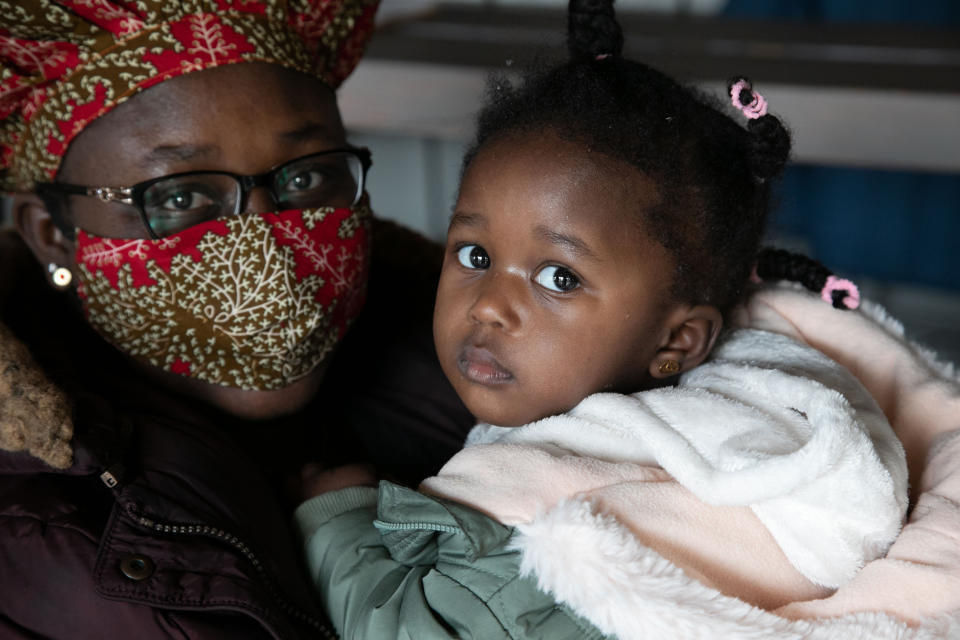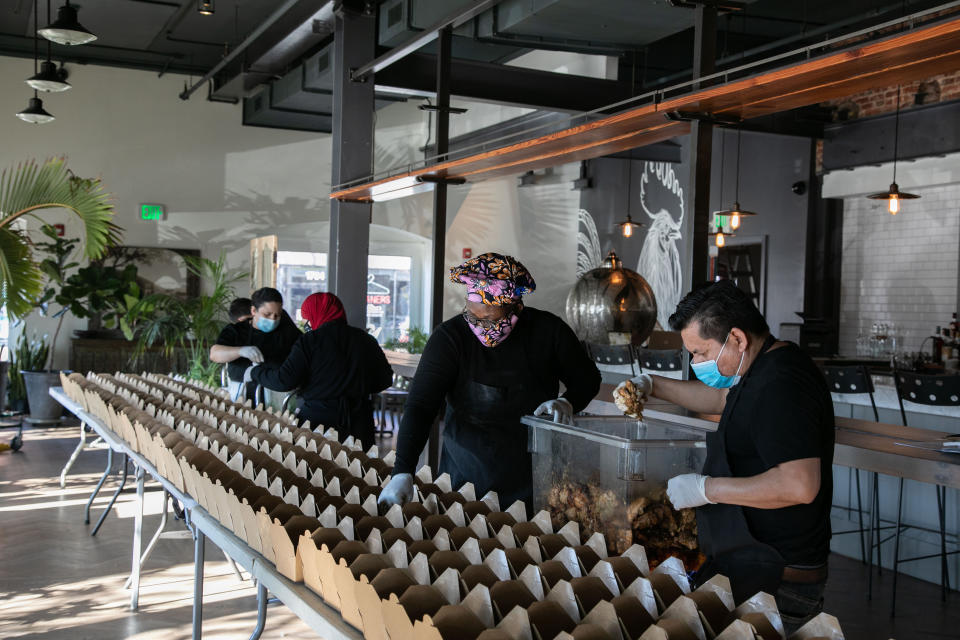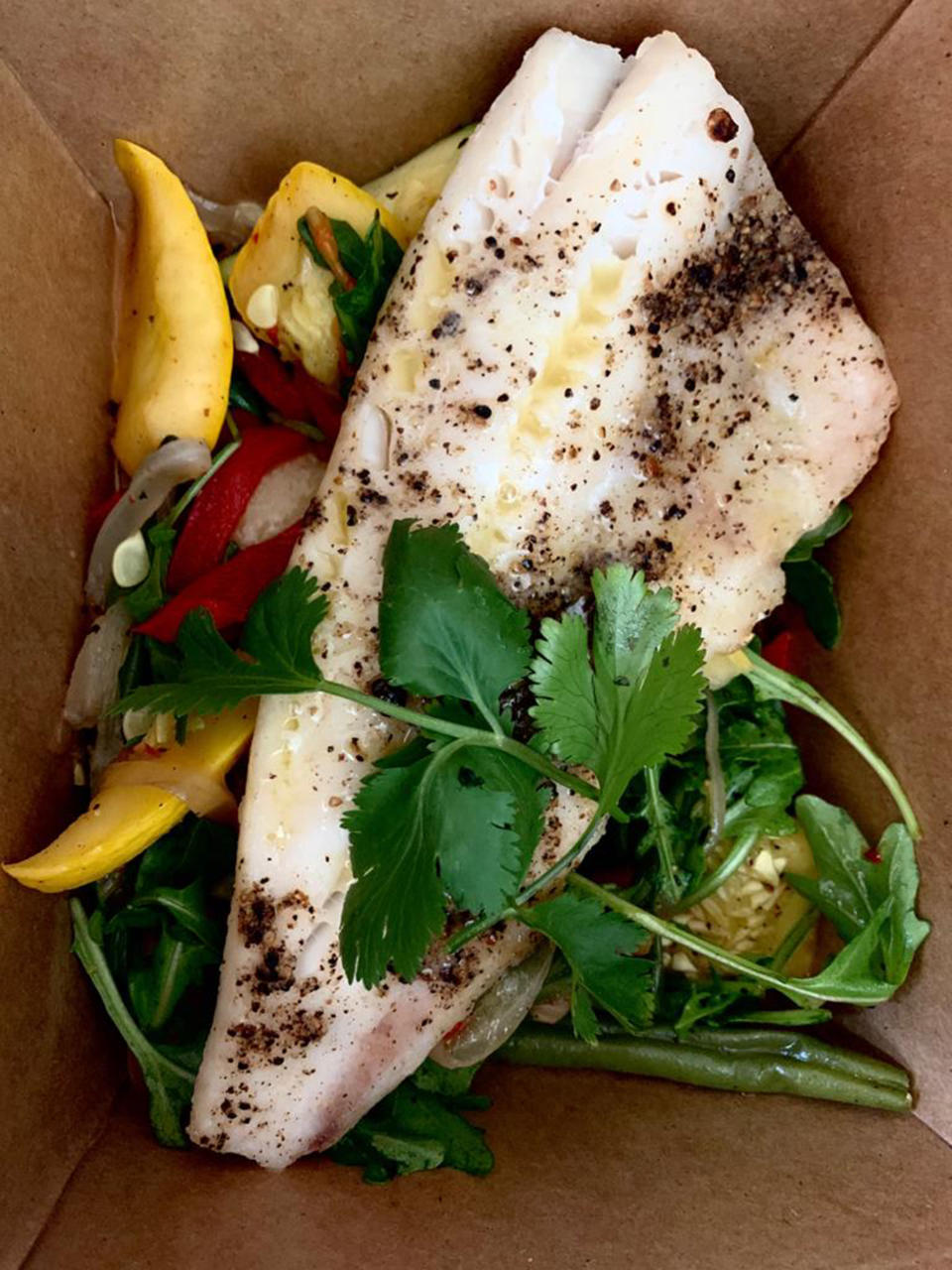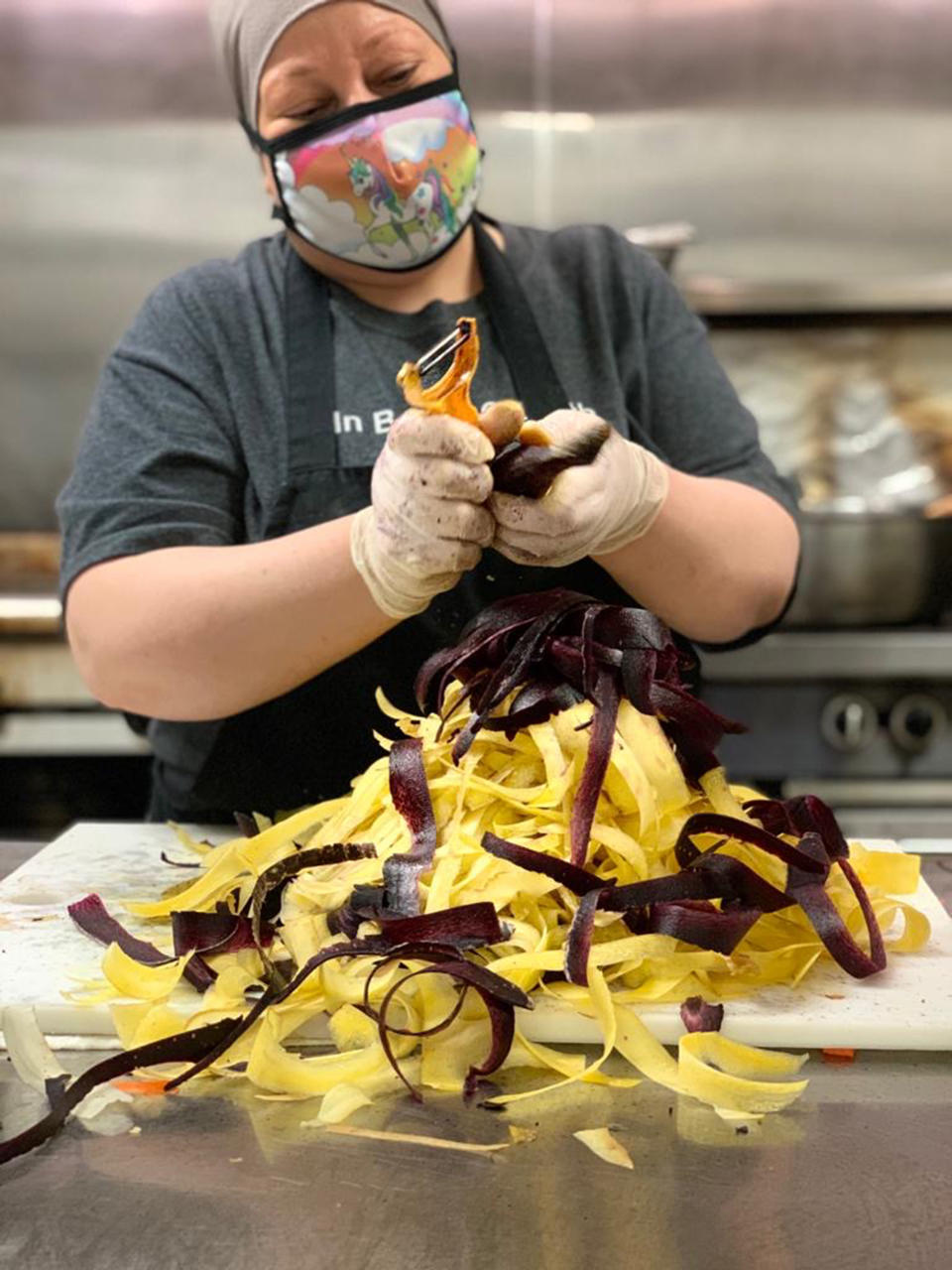How this restaurant reinvented itself as a community meal service powered by immigrants
When Alma Cocina Latina and Mera Kitchen Collective shuttered in-person operations in March 2020, owners Irena Stein and Emily Lerman joined forces to create a free community meal service called Ålkimiah. After nearly a year, Stein, Lerman and their small team have delivered 105,000 free, healthful meals to underserved Baltimore residents — and they're just getting started.

Stein was born in Venezuela and grew up between South America and Europe. With an education in social work and cultural anthropology, Stein spent the first 18 years of her career as a jewelry designer in New York. Following 9/11, Stein reinvented herself and turned to her passion for food and community. She opened two Venezuelan cafes in Baltimore, one at NASA's observatory for the Hubble Telescope in 2004, which she closed in February 2020, and one on the John Hopkins University campus, which closed during the pandemic. There, the country's most brilliant scientists would push together tables and spend hours talking over coffee and arepas.
In 2014, Stein opened her first fine-dining spot famed for those warm stoneground maize sandwiches. The cornerstones of Alma, she said, are Venezuelan chef and culinary director Enrique Limardo and executive chef David Zamudio, both of whom found refuge in the U.S. with their families on visas for people with extraordinary abilities.

Mera Kitchen Collective is a small catering company and worker-owned co-op that, according to its website, is only "legally owned" by Lerman. It's helmed by a group of women immigrants and refugees that share their cultural heritage by cooking native dishes from West Africa, Syria and other countries for the collective's catering and pop-up events around Baltimore.
Lerman co-founded the democratic business as a way to shift systemic oppression through equal employment opportunities for the women involved, many of whom had young children to support and keep safe. The co-op model was inspired by female empowerment groups she worked with during her time with Doctors Without Borders in the Central African Republic, Ethiopia, Mali, Nigeria, the Democratic Republic of Congo, South Sudan, Sri Lanka and Haiti.
Ålkimiah's genesis
At the onset of the pandemic, Lerman and Stein saw the inequities faced by their community, the country and world intensify and were immediately compelled to help with the resources they had: nutritious food and a working kitchen that no longer had the demand of in-person dining. By March 16, Ålkimiah was up and running with a volunteer management team that included Stein and Lerman and essential culinary team made up of refugees and immigrants. Each makes $16 an hour for their work.

Together, Ålkimiah's employees and volunteers prepare the same bountiful fishes, vegetables and proteins they would for a paying customer but for free. At the start, every meal came from Mera Kitchen's GoFundMe and individual donations.
"We were serving 700 meals a day at the beginning. We didn’t know one week to the next of how many people we could feed and how long we could continue," Stein told TODAY Food.
In April, however, that changed when Ålkimiah got in touch with chef Jose Andres' nonprofit World Central Kitchen, which works on similar initiatives. WCK committed to give Ålkimiah continuous funding to distribute more meals to more people without sacrificing quality or sustainability — both key to how Stein and Lerman want to change how lower-income and people of color can access fresh food.
Food that's good for the planet, good for the people
"Ålkimiah comes from the Arab word, 'al-kīmiyā.'" Stein told TODAY. "It means 'alchemy.' In this case, the transformation of ingredients given by the earth into food. It's like gold. Without food we cannot live. Food should be treated be like gold."
As such, Stein and Lerman believe, this "gold" should be distributed to everyone, especially those who cannot afford it. Like Alma Cocina, Ålkimiah is planetary-diet inspired and they do not sacrifice using less nutritious ingredients for the sake of churning out cheaper meals.
"It's philosophically geared: a new way of thinking, of doing. If we continue with old bad habits, nothing will ever change. Right now the planet is in bad shape, and the people too," Stein told TODAY. "It's sustainable, well-balanced food heavy on veggies and fruit. Food that doesn’t hurt the earth and doesn’t hurt the people. It's very rare that we have red meat, maybe once a month. Everyday there’s a different meal (for both Alma and Ålkimiah): lots of fish and vegetarian, some gluten-free."

During the last year, Ålkimiah worked with many local farms, most of them outside the city, to purchase excess crops, when feasible, at reduced prices. After selling crops to hotels and at farmers markets, many of the farms are forced to throw out what's left.
Now that Ålkimiah has been operating for nearly a year, Stein and her team are focused on expanding this holistic approach to redirecting food distribution. They buy the crops at reduced prices and/or accept farms' donations to ensure that the freshest foods are reaching people in the community who would not have easy access to it otherwise because of geographic location and cost. According to the United States Department of Agriculture, 30 to 40% of America's food supply is wasted each year — which amounts to over 133 billion pounds of food.
Their goal is to find ways to get that food from the waste bin to the consumer (or in their case, the community kitchen).
Looking beyond Baltimore to change systemic food inequities
In Stein's opinion, getting wholesome meals on the tables of low-income households is one way to provide urban food deserts equal access to nutrient-rich foods.
"It's pretty bourgeois having access to fresh, organic produce. It's not available in a lot of communities." Stein said. "We're just re-routing the food."
This process has become more streamlined since Ålkimiah settled into its new brick and mortar location. Since its inception nearly a year ago, the community meal service operated in Alma Cocina and then in a rented kitchen. In January, Alma Cocina transitioned to a larger renovated space with a kitchen that houses Ålkimiah in the morning, Mera Kitchen Collective in the afternoon and Alma Cocina in the evening.
"One space for three different causes. It's a fantastic alternative for struggling restaurants in the future, I think, to collaborate in one kitchen space," Stein told TODAY. "It was a lot of stress in the beginning, but we solved most problems. It's tricky but when organized, works really well."

Now that all three operations are creating food and opportunity under one roof, Stein and the team are expanding their initiatives to change how healthy food is distributed to low-income, Black, indigenous, immigrant communities. Stein has reached out to smaller urban farms, many of which are Black-owned, to invent menus based on what crops they produce and pour money into the urban community.
They are also looking beyond Baltimore and reaching out to restaurants and other organizations nationwide to see how they can partner, exchange advice or develop more ideas to reach other underserved urban areas with fresh, sustainable meals.
"We're food professionals, and that means we have the ability to change food policy. The government does so little in terms of providing food for communities that are underserved and unacknowledged. These people are given bad, processed food filled with carbohydrates that continues to contribute to increased health problems within their communities.” Stein told TODAY. “These are the issues lower-income Americans continue to face because we are not giving them quality food. We're trying to change that on a systemic level ... to raise the budgets, to make quality, healthy food accessible to the community, and showcase that restaurants can help transform nutrition in this country."
With sights set on expanding Ålkimiah's holistic approach to fresh food and produce — getting "the gold" onto every table — Stein and her team continue to work on the ground in Baltimore to gain support from more non-profits and wealthier individuals to invest in their city and how the people in it eat.
"I try to have everything together: the food, the people, the art — life is all of that together," Stein told TODAY. "I'm in search of beauty everywhere; we have to make life nice for everybody. We can't just be happy by ourselves."

